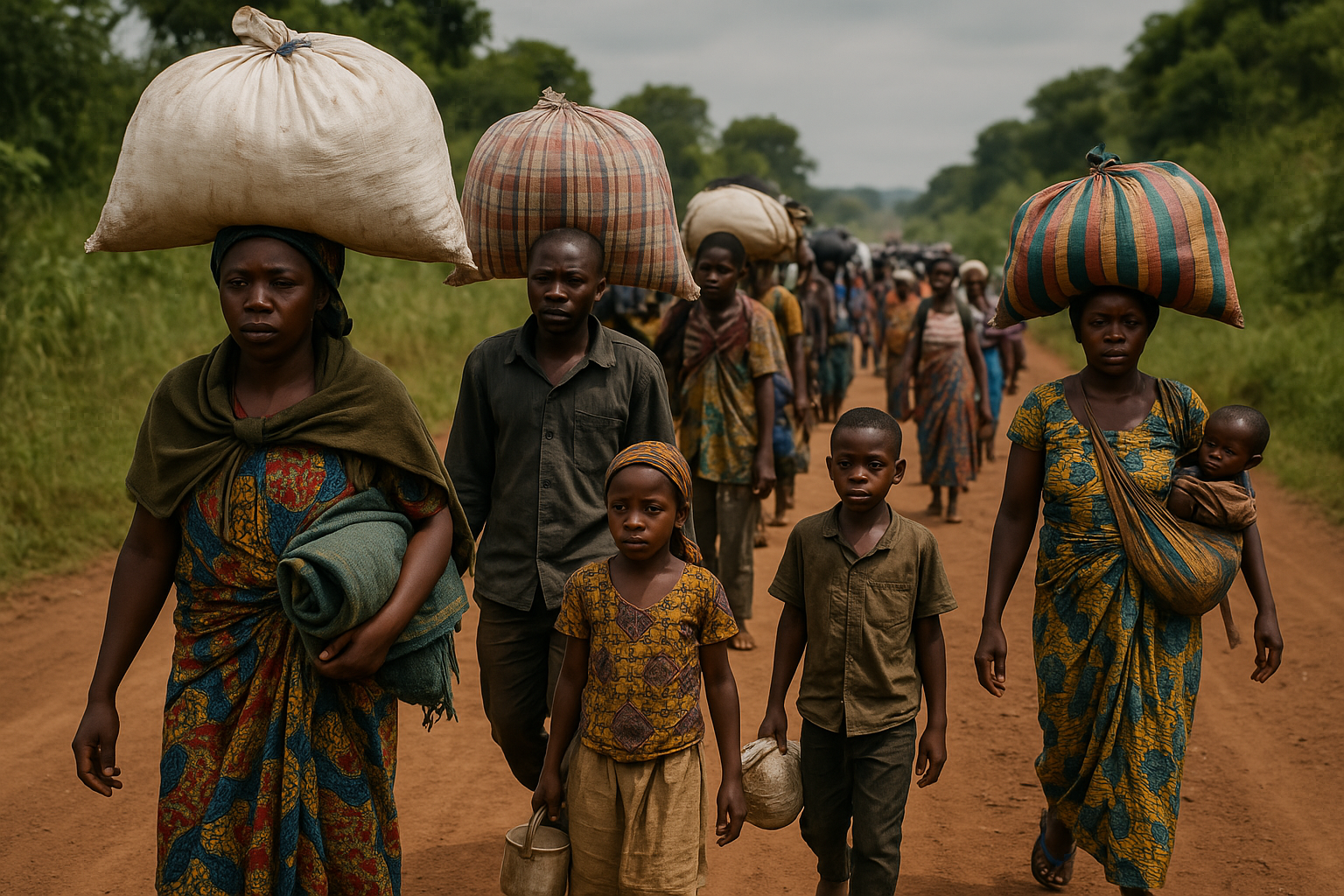In April 2025, the United States issued a pointed demand to Rwanda to withdraw its troops from the eastern Democratic Republic of Congo (DRC) following the prolonged years of DRC Conflict. The accusation? Backing the M23 rebel group, which has wreaked havoc across North Kivu.
This marked not just a sharp escalation in diplomatic rhetoric but also a spotlight on Africa’s unresolved, decades-long crisis—and the continent’s wavering agency in solving it.
Understanding the DRC Conflict: A Brief Overview
Eastern DRC has long been engulfed in instability. Armed groups, fueled by local grievances and external interests, have turned mineral-rich regions into battlegrounds. Among them, the M23 rebel group, originally defeated in 2013, resurged in 2021, taking over large territories, displacing communities, and prompting international concern.
The DRC government accuses Rwanda of directly supporting M23, allegations backed by United Nations reports detailing Rwandan military involvement. Rwanda insists it’s acting in self-defense, targeting the FDLR (Democratic Forces for the Liberation of Rwanda), a rebel group it claims is linked to the 1994 genocide and allegedly operating within the Congolese army.
Why the U.S. Is Involved Now
While the U.S. has historically tiptoed around this conflict, recent developments have changed the game. On April 17, 2025, the U.S. State Department explicitly condemned M23 atrocities and demanded Rwanda’s withdrawal from Congolese territory. The U.S. also emphasized support for U.N. Resolution 2773, passed in February, which called on Rwanda to cease backing M23 and encouraged renewed diplomatic dialogue between the two countries.
Washington’s growing interest in the DRC isn’t purely humanitarian. The country is home to vast reserves of cobalt and copper — minerals crucial for clean energy technologies and electric vehicles. With China already deeply entrenched in the DRC’s mining sector, the U.S. is clearly positioning itself both as a security actor and a strategic economic partner.
Rwanda’s Response: Defiance and Distrust
Rwanda swiftly rejected the U.S. statement, questioning America’s neutrality and motives. Kigali insists its actions are defensive and that blaming Rwanda alone oversimplifies a complex situation.
Rwandan officials also argue that by aligning too closely with Kinshasa, Washington risks emboldening the FDLR and deepening instability. The country remains adamant: regional diplomacy, not finger-pointing, is the only path forward.
DRC Conflict and what’s at Stake: More Than Just Borders
The repercussions of this standoff go beyond Rwanda and the DRC. At stake is regional stability, millions of lives, and the credibility of international diplomacy. Already, hundreds of thousands have been displaced, humanitarian corridors are choked, and cross-border relations have frayed.
Also Read: Kwibuka 31: Remembering the Past, Rebuilding a Nation
Moreover, the DRC conflict is revealing uncomfortable truths: Africa’s mineral wealth continues to attract external manipulation, while its internal institutions struggle to respond with unity and strength.
The Role of African Institutions
African institutions like the African Union (AU) and the East African Community (EAC) have been conspicuously muted amid the rising tensions. This raises pressing questions about the strength — or fragility — of the long-touted principle: “African solutions to African problems.”
In past conflicts, African-led initiatives showed what’s possible. African leaders championed the 2018 peace accord between Ethiopia and Eritrea. The Intergovernmental Authority on Development (IGAD) played a central role in facilitating South Sudan’s peace talks. These efforts, while imperfect, demonstrate the potential of localized diplomacy.
What Happened to “African Solutions for African Problems”?
For years, “African solutions to African problems” has been the mantra — a rallying cry for continental self-determination and localized diplomacy. But the current crisis exposes its fragility.
Instead of AU-mediated negotiations or a revitalized regional framework, we are seeing old power dynamics reassert themselves. The West is back in the driver’s seat. Rwanda and the DRC are at each other’s throats. And African lives — again — are caught in the crossfire of geopolitical gamesmanship.
If the continent is serious about shaping its peace and future, this conflict should be the moment it reclaims the wheel.
Conclusion: A Call to Action for African Diplomacy
The U.S. push for Rwanda’s withdrawal highlights the urgency of the DRC crisis. But real, lasting peace cannot be imported. It must be built — brick by brick — through African leadership, diplomacy, and political will.
The AU and regional blocs must act now: convene emergency summits, establish neutral mediation panels, and hold state actors accountable — not just for war crimes, but for failure to deescalate. International allies can support, but the continent must lead.
This isn’t just about DRC or Rwanda. It’s about whether Africa can define its future, resolve its conflicts, and speak with one voice when the world is watching, because the world is watching.
Further Reading:

One Comment